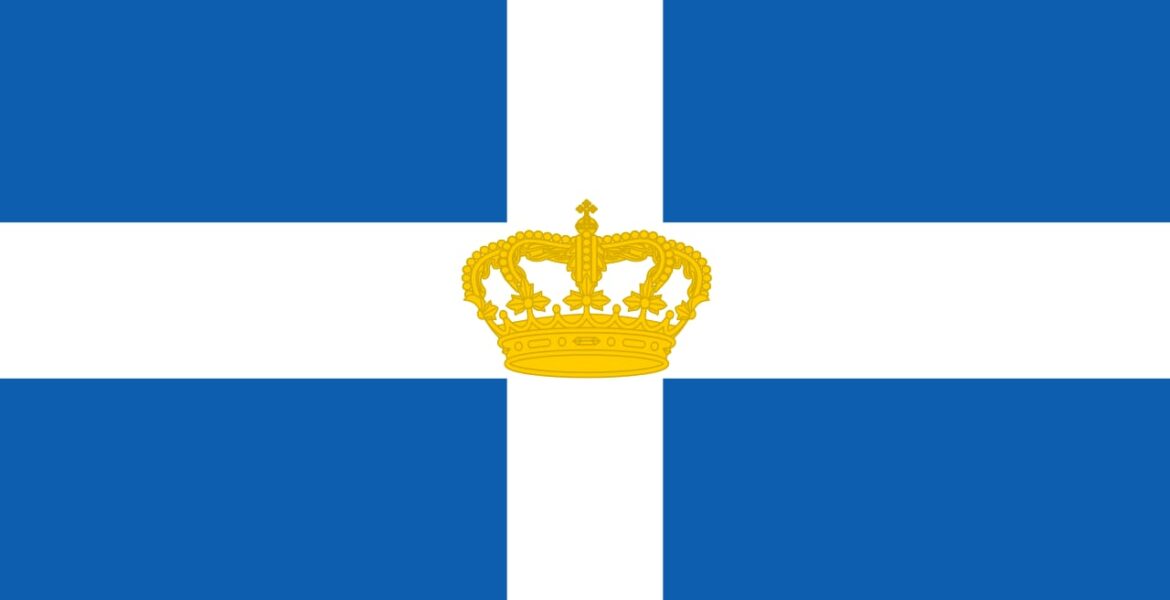The Kingdom of Greece (Greek: Βασίλειον τῆς Ἑλλάδος) was established in 1832 and was the successor state to the First Hellenic Republic.
It was internationally recognised by the Treaty of Constantinople, where Greece also secured its full independence from the Ottoman Empire after nearly four centuries.
In 1831, the assassination of the first Governor of Greece, Count Ioannis Kapodistrias, created political and social instability that endangered the country’s relationship with its allies.

To avoid escalation and in order to strengthen Greece’s ties with the Great Powers, Greece agreed to become a Kingdom in 1832; see Treaty of London (1832).
Prince Leopold of Saxe-Coburg and Gotha was initially the first candidate for the Greek throne; however, he turned down the offer.
Otto of Wittelsbach, Prince of Bavaria was chosen as its first King.
Otto arrived at the provisional capital, Nafplion, in 1833 aboard a British warship.
The Kingdom of Greece was dissolved in 1924 and the Second Hellenic Republic was established following Greece’s defeat by Turkey in the Asia Minor Campaign.
A military coup d’état restored the monarchy in 1935 and Greece became a Kingdom again until 1973.
The Kingdom was finally dissolved in the aftermath of a seven-year military dictatorship (1967–1974) and the Third Hellenic Republic was established following a referendum held in 1974.
READ MORE: Akar: Greece has been pursuing an expansionist policy since 1821.

